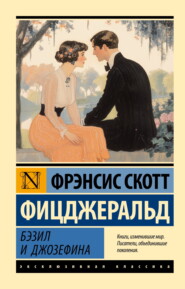По всем вопросам обращайтесь на: info@litportal.ru
(©) 2003-2024.
✖
F. Scott Fitzgerald Collection: The Great Gatsby, The Beautiful and Damned and Tender is the Night
Год написания книги
2019
Настройки чтения
Размер шрифта
Высота строк
Поля
“I belong here,” she murmured, “I’m like these people.”
For an instant this seemed a sardonic and unnecessary paradox hurled at him across the impassable distances she created about herself. Her entrancement had increased—her eyes rested upon a Semitic violinist who swayed his shoulders to the rhythm of the year’s mellowest fox-trot:
“Something—goes
Ring-a-ting-a-ling-a-ling
Right in-your ear—”
Again she spoke, from the centre of this pervasive illusion of her own. It amazed him. It was like blasphemy from the mouth of a child.
“I’m like they are—like Japanese lanterns and crape paper, and the music of that orchestra.”
“You’re a young idiot!” he insisted wildly. She shook her blonde head.
“No, I’m not. I am like them. … You ought to see. … You don’t know me.” She hesitated and her eyes came back to him, rested abruptly on his, as though surprised at the last to see him there. “I’ve got a streak of what you’d call cheapness. I don’t know where I get it but it’s—oh, things like this and bright colors and gaudy vulgarity. I seem to belong here. These people could appreciate me and take me for granted, and these men would fall in love with me and admire me, whereas the clever men I meet would just analyze me and tell me I’m this because of this or that because of that.”
—Anthony for the moment wanted fiercely to paint her, to set her down now, as she was, as, as with each relentless second she could never be again.
“What were you thinking?” she asked.
“Just that I’m not a realist,” he said, and then: “No, only the romanticist preserves the things worth preserving.”
Out of the deep sophistication of Anthony an understanding formed, nothing atavistic or obscure, indeed scarcely physical at all, an understanding remembered from the romancings of many generations of minds that as she talked and caught his eyes and turned her lovely head, she moved him as he had never been moved before. The sheath that held her soul had assumed significance—that was all. She was a sun, radiant, growing, gathering light and storing it—then after an eternity pouring it forth in a glance, the fragment of a sentence, to that part of him that cherished all beauty and all illusion.
CHAPTER 3 (#ulink_765fc8c7-eefc-5b01-90c7-43ba7ebe5f4d)
THE CONNOISSEUR OF KISSES
From his undergraduate days as editor of The Harvard Crimson Richard Caramel had desired to write. But as a senior he had picked up the glorified illusion that certain men were set aside for “service” and, going into the world, were to accomplish a vague yearnful something which would react either in eternal reward or, at the least, in the personal satisfaction of having striven for the greatest good of the greatest number.
This spirit has long rocked the colleges in America. It begins, as a rule, during the immaturities and facile impressions of freshman year—sometimes back in preparatory school. Prosperous apostles known for their emotional acting go the rounds of the universities and, by frightening the amiable sheep and dulling the quickening of interest and intellectual curiosity which is the purpose of all education, distil a mysterious conviction of sin, harking back to childhood crimes and to the ever-present menace of “women.” To these lectures go the wicked youths to cheer and joke and the timid to swallow the tasty pills, which would be harmless if administered to farmers’ wives and pious drug-clerks but are rather dangerous medicine for these “future leaders of men.”
This octopus was strong enough to wind a sinuous tentacle about Richard Caramel. The year after his graduation it called him into the slums of New York to muck about with bewildered Italians as secretary to an “Alien Young Men’s Rescue Association.” He labored at it over a year before the monotony began to weary him. The aliens kept coming inexhaustibly—Italians, Poles, Scandinavians, Czechs, Armenians—with the same wrongs, the same exceptionally ugly faces and very much the same smells, though he fancied that these grew more profuse and diverse as the months passed. His eventual conclusions about the expediency of service were vague, but concerning his own relation to it they were abrupt and decisive. Any amiable young man, his head ringing with the latest crusade, could accomplish as much as he could with the débris of Europe—and it was time for him to write.
He had been living in a down-town Y.M.C.A., but when he quit the task of making sow-ear purses out of sows’ ears, he moved up-town and went to work immediately as a reporter for The Sun. He kept at this for a year, doing desultory writing on the side, with little success, and then one day an infelicitous incident peremptorily closed his newspaper career. On a February afternoon he was assigned to report a parade of Squadron A. Snow threatening, he went to sleep instead before a hot fire, and when he woke up did a smooth column about the muffled beats of the horses’ hooves in the snow … This he handed in. Next morning a marked copy of the paper was sent down to the City Editor with a scrawled note: “Fire the man who wrote this.” It seemed that Squadron A had also seen the snow threatening—had postponed the parade until another day.
Вы ознакомились с фрагментом книги.
Приобретайте полный текст книги у нашего партнера:
Приобретайте полный текст книги у нашего партнера:

















